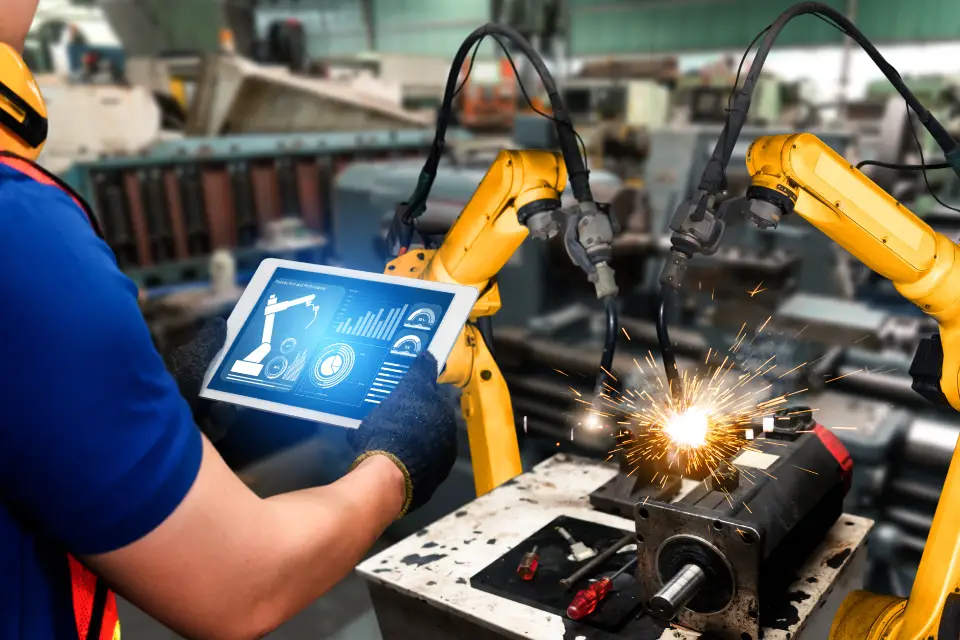In the dynamic world of modern manufacturing, innovation meets efficiency through the power of automation. Let’s embark on a journey to explore the transformative impact of automation on manufacturing processes. Uncover the numerous manufacturing automation benefits that are brought to the manufacturing industry and discover how it’s reshaping the future of manufacturing.
Maximizing Efficiency
Manufacturing automation benefits include streamlining production processes, reducing manual intervention, and optimizing resource utilization. By automating repetitive tasks, manufacturers can achieve higher efficiency levels, leading to increased output and productivity.

Cost Reduction
One of the significant manufacturing automation benefits is cost reduction. By automating manual processes, manufacturers can minimize labor costs, reduce material wastage, and optimize energy consumption. Additionally, automation enables predictive maintenance, preventing costly equipment breakdowns and downtime.
Enhanced Product Quality
Automation ensures consistent quality across manufacturing processes by eliminating human errors and variability. Through automated quality control systems and the Internet of Things (IoT) sensors, manufacturers can monitor product quality in real-time, identifying and rectifying defects before they escalate, thereby improving overall product quality and customer satisfaction.
Improved Safety
Automation in manufacturing reduces the risk of workplace accidents by replacing hazardous tasks with automated processes. IoT-enabled sensors and wearable devices monitor environmental conditions and worker health, ensuring compliance with safety regulations and fostering a safer work environment.

Optimized Inventory Management
Automation combined with IoT technologies enables real-time monitoring of inventory levels, locations, and movements. By automating inventory management processes, manufacturers can minimize stockouts, reduce excess inventory, and optimize material flow, leading to improved supply chain efficiency and saved expenses.
Predictive Maintenance
Automation facilitates predictive maintenance by using IoT sensors to monitor equipment health and performance in real time. By analyzing data from sensors, manufacturers can predict potential equipment failures and schedule maintenance proactively, minimizing downtime, extending equipment lifespan, and reducing maintenance costs.
Agility and Flexibility
Automation enables manufacturing processes to be more agile and flexible, allowing for rapid adjustments to production schedules and product configurations. With automated systems, manufacturers can respond quickly to changing market demands, customer preferences, and supply chain disruptions, maintaining competitiveness in dynamic markets.
Data-Driven Decision Making
Automation generates vast amounts of data that can be analyzed to gain actionable insights into manufacturing operations. By leveraging data analytics and machine learning algorithms, manufacturers can make informed decisions, optimize processes, and drive continuous improvement across the organization.

Automation offers manufacturing industries a host of benefits. Embracing automation unlocks new growth opportunities, but its successful implementation demands planning, technology investment, and workforce development. Automation is a transformative force shaping the future of manufacturing, driving organizations toward unparalleled success in the digital age.



